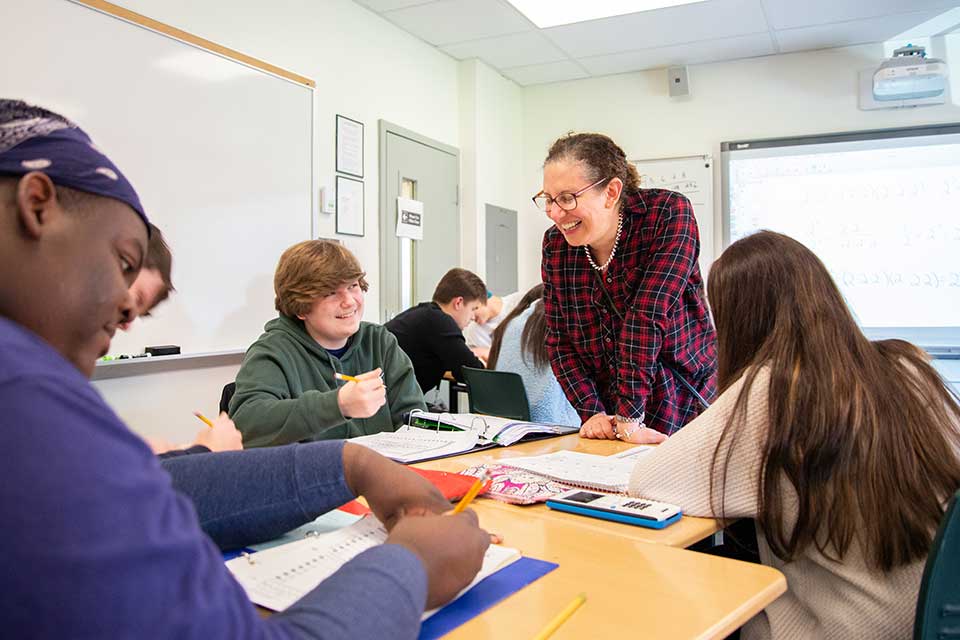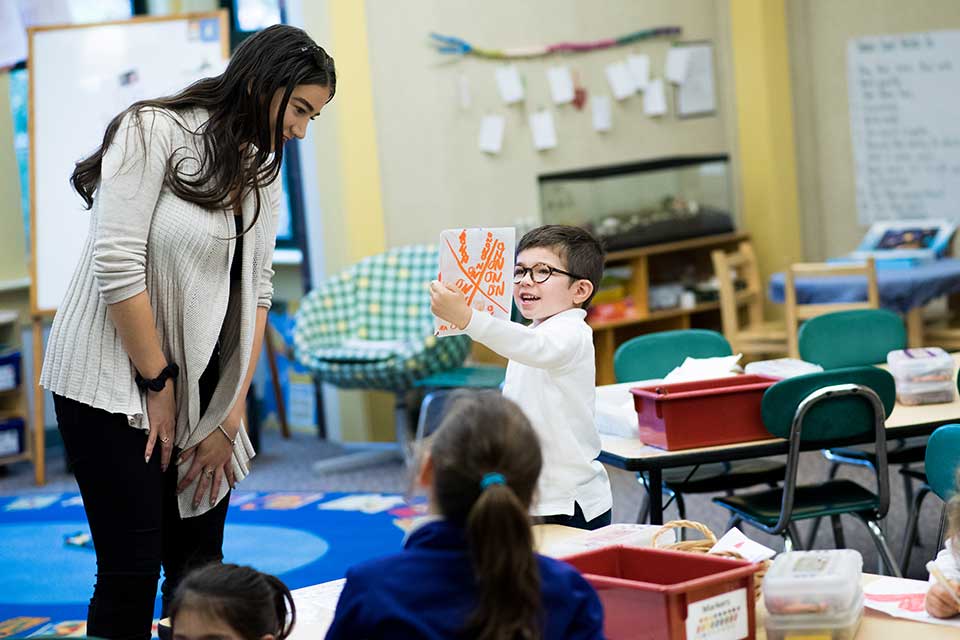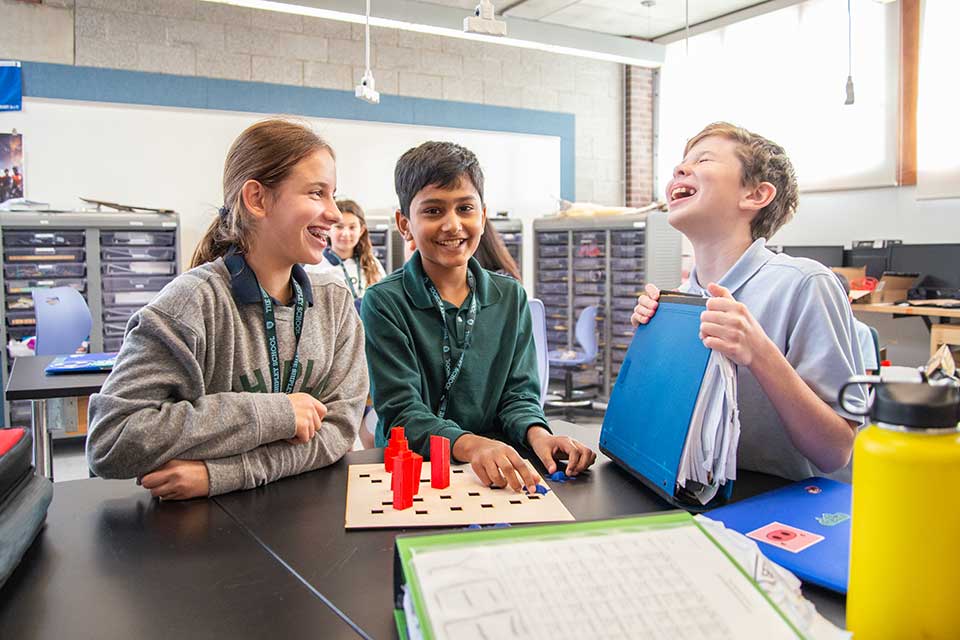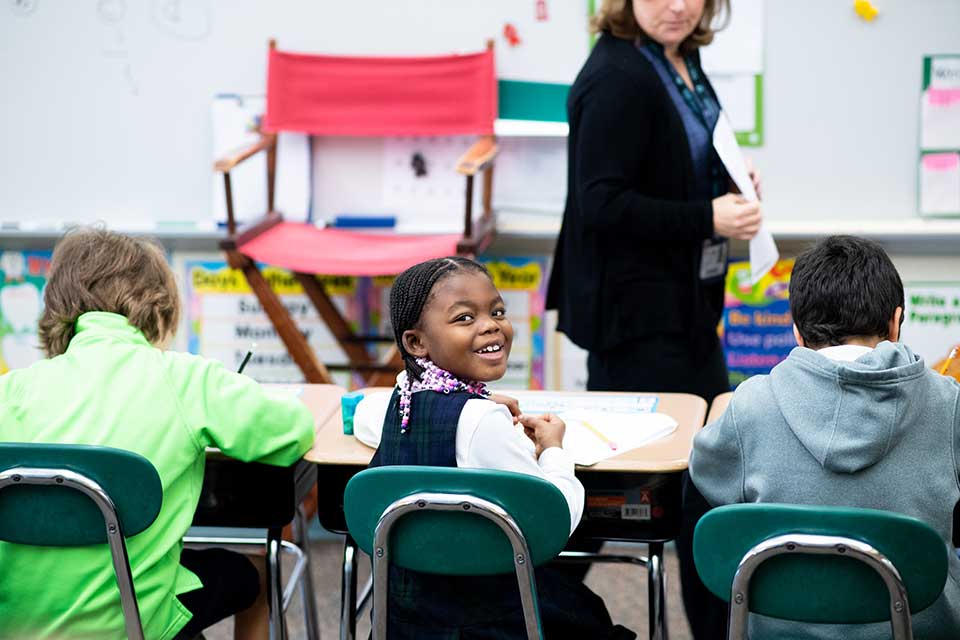Focusing on Your Child’s Well-Being Could Be the Key to Academic Success in the Classroom

Courtesy of Shipley School
Education is often about teaching good habits. Research shows that if a school can assist its students in discovering their passions and learning how to care for others, it’s more likely they’ll have success in the classroom and make a positive impact on the world.
These ideas define the mission of The Shipley School, often referred to as “Shipley,” an independent day school located in Bryn Mawr that fosters a safe and welcoming learning environment and produces strong academic outcomes.
“We want to create compassionate students, elevate student voices and promote students into leadership roles so that they can learn what it’s like to be a positive force in the community,” says Dr. Shane Kinsella, Shipley’s Head of Middle School.
Drawing from scientific methods in fields such as neuroscience and educational psychology and foundations like Dr. Martin Seligman of the University of Pennsylvania’s groundbreaking PERMA (Positive Emotion, Engagement, Relationships, Meaning and Accomplishment) model, Shipley harnesses the power of positive education to encourage students to flourish. Positive education is defined by a healthy mixture of more traditional educational pursuits, active learning and a focus on students’ well-being.
“Our model is designed to expand beyond prior frameworks and emphasize more than the individual student,” says Dr. Sharron Russell, Shipley’s Director of Positive Education and Student Support. “We want to build something bigger than positive education — we’re not just taking from past research but building our own Shipley model to help students thrive.”
Shipley was among the first wave of institutions to adopt the positive education model in its approach, and now, it’s using what it’s learned to create its own idea for what positive education can be.
“Our goal is to try to look at a bigger picture to build students’ individual and collective well-being and help them achieve academic success,” Dr. Russell says.
A Multi-Dimensional Approach to Education

Courtesy of Shipley School
The Shipley School is a Pre-K-12 private school that places equal emphasis on individual well-being, collective well-being, and student achievement in pursuit of educational excellence.
The practice of positive education mandates that academic success be supported by emotional well-being — one can’t exist without the other. To achieve this balance, Shipley conducts yearly screenings with its students and faculty, asking tough questions about mental health and relationships at school.
“Our social emotional learning curriculum focuses on emotions and we look at data to get better,” Dr. Russell says. “Sometimes that confirms what we know and sometimes we’re surprised. We try to take it all in, evaluate, and adjust accordingly.”
This practice has yielded actionable results — for example, when a survey of its sixth graders revealed higher rates of anxiety, Shipley instituted interventions and made a concerted effort to monitor their effectiveness.
“We have a sense of what’s going well and where we need to grow,” says Dr. Nick Holton, Shipley’s Co-Director of Positive Education, who works with Dr. Russell along with Dr. Reginald Davenport, the School’s Director of Diversity, Equity and Inclusion and Wendy Eiteljorg, its Director of Curricular Innovation, to advance its framework. “We’re in the process of seeing how we can establish metrics to understand where students are and how to support them when it comes to taking classes, getting good grades and applying to college.”
Extending Opportunities to Learn

Courtesy of Shipley School
Shipley’s SEED (Social, Emotional and Ethical Development) curriculum starts in PreK and continues until students graduate. The social emotional learning curriculum covers topics like morality, social justice and how to be an upstanding citizen.
“I think one of the reasons our SEED program is so successful is that students have it on their schedule once a week every year for 13 years,” Dr. Russell says. “We monitor students and that helps us identify gaps and places we can improve.”
Dr. Russell adds that public forums, in particular, are areas where students’ emotional intelligence shines. For instance, in the School’s second assembly of the year, a 10th grader opened up about her hearing loss in front of 400 people and guided students toward resources to get involved with the issue.
“Overall, we focus on the individual student and set them up for success,” says Dr. Tim Lightman, Shipley’s Head of Lower School. “We want to help kids figure out what they’re passionate about and push them to places to experiment where they might feel less confident or secure — because that’s life.”
Teaching Students to Speak Their Mind

Courtesy of Shipley School
Implementing positive education means molding students who not only are equipped to advocate for themselves, but feel strongly about doing so.
Shipley’s spring parent-teacher conferences in Middle and Upper School are structured around student involvement, where students lead the discussion with their parents/guardians and teachers about what they’re learning and things that might be bothering them. Shipley has also formed committees for diversity, equity and inclusion and well-being within its student government, with student members involved in planning initiatives and activities.
“Individual and collective well-being begin with a sense of belonging,” Dr. Lightman says. “If there’s some kind of struggle — whether it’s social or academic, we always want to bring the kids into the conversation and we want it to happen at school so that they learn how to advocate for themselves.”
Evaluating Students’ Well-Being

Courtesy of Shipley School
At Shipley, faculty are aware of how each student is progressing and even discuss challenges and wins in weekly grade level meetings. Plus, at any given time, there’s a dozen or more faculty who are aware of a child’s academics and overall well-being.
“Different students can be thriving with very different criteria,” Dr. Russell says. “We have students who are thriving who also suffer from anxiety or depression. Aspirationally, in all areas of our framework, we want to ensure we’re making gains.”
This inclusivity helps Shipley create a learning environment that students are excited to return to. And when it’s time for students to graduate and head off to college, they’ll take with them the lessons they’ve learned in becoming independent, assertive, and ethical thinkers.
“We’re trying to put methods in place that allow students and faculty to become the best version of themselves,” Dr. Holton says. “We hope that helps bring in families who believe in this idea, which can help us produce good human beings who can then go out and change the world.”
For more on The Shipley School’s positive education efforts and to find out how the school might be best for your child, head here.
This is a paid partnership between The Shipley School and Philadelphia Magazine